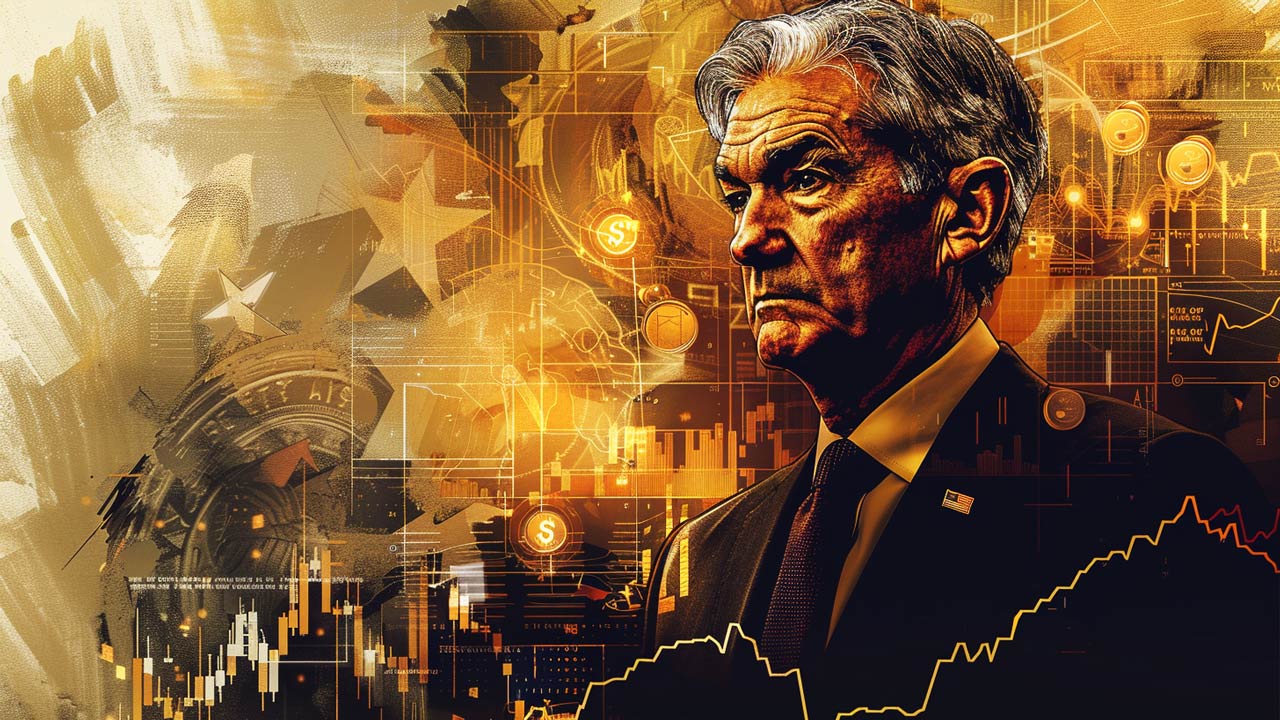War on Cash: New York Fed Launches “Digital Dollar” Pilot Program
On Tuesday (Nov. 15), the New York Federal Reserve announced a 12-week pilot program in partnership with several large commercial banks to test the feasibility of a central bank digital currency (CBDC).
The “proof of concept” program will test an “interoperable digital money platform” on a regulated liability network (RLN) for “technical feasibility, legal viability, and business applicability of distributed ledger technology,” according to a press release.
The pilot program will use digital “tokens” that represent bank deposits. Institutions involved in the program will engage in simulated transactions to test the viability of the system. According to Reuters, “The pilot will test how banks using digital dollar tokens in a common database can help speed up payments.”
Banks involved in the pilot program include BNY Mellon, Citi, HSBC, Mastercard, PNC Bank, TD Bank, Truist, US Bank and Wells Fargo. The global financial messaging service provider SWIFT is also participating “to support interoperability across the international financial ecosystem.”
Earlier this year, the Federal Reserve released a “discussion paper” examining the pros and cons of a potential US central bank digital dollar. According to the central bank’s website, there has been no decision on implementing a digital currency, but this pilot program reveals the idea is further along than most people realized.
Digital dollars would be similar to bitcoin and other cryptocurrencies. They would exist as virtual banknotes or coins held in a digital wallet on your computer or smartphone. The difference between a government digital currency and bitcoin is the value of the digital currency is backed and controlled by the state, just like traditional fiat currency.
The digital dollar could ultimately replace physical cash. Proponents tout its convenience and security. A Business Insider article gushed over the idea.
A Fed-backed digital dollar would then provide many of the benefits touted by cryptocurrencies without their wild price swings and usage fees. In theory, a CBDC would meld the best aspects of physical and digital currencies for the average American.”
Government-issued digital currencies are sold on the promise of providing a safe, convenient, and more secure alternative to physical cash. We’re also told it will help stop dangerous criminals who like the intractability of cash. But there is a darker side – the promise of control.
At the root of the move toward government digital currency is “the war on cash.” The elimination of cash creates the potential for the government to track and even control consumer spending, and it would make it even easier for central banks to engage in manipulative monetary policies such as negative interest rates.
Imagine if there was no cash. It would be impossible to hide even the smallest transaction from government eyes. Something as simple as your morning trip to Starbucks wouldn’t be a secret from government officials. As Bloomberg put it in an article published when China launched its digital yuan pilot program, digital currency “offers China’s authorities a degree of control never possible with physical money.”
The government could even “turn off” an individual’s ability to make purchases. Bloomberg described just how much control a digital currency could give Chinese officials.
The PBOC has also indicated that it could put limits on the sizes of some transactions, or even require an appointment to make large ones. Some observers wonder whether payments could be linked to the emerging social-credit system, wherein citizens with exemplary behavior are ‘whitelisted’ for privileges, while those with criminal and other infractions find themselves left out. ‘China’s goal is not to make payments more convenient but to replace cash, so it can keep closer tabs on people than it already does,’ argues Aaron Brown, a crypto investor who writes for Bloomberg Opinion.”
China launched its digital yuan pilot program last year. The Chinese government-backed digital currency got a boost when the country’s biggest online retailer announced the first virtual platform to accept the Chinese digital currency.
China isn’t the only government exploring the possibility of digital money. Sweden has developed a digital currency of its own. The European Central Bank is pushing for a digital euro. And Russian central bank governor Elvira Nabiullina told CNBC that digital currency is “the future of our financial system.”
Ultimately, it would take a congressional act to establish a digital dollar as legal tender.
US officials toyed with the possibility of a digital dollar at the height of the pandemic. A Democratic proposal for stimulus payments in the wake of the coronavirus pandemic featured digital currency deposited into digital wallets.
Economist Thorsten Polleit outlined the potential for Big Brother-like government control with the advent of a digital euro in an article published by the Mises Wire. As he put it, “the path to becoming a surveillance state regime will accelerate considerably” if and when a digital currency is issued.
Governments around the world have quietly waged a war on cash for years. Back in 2017, the IMF published a creepy paper offering governments suggestions on how to move toward a cashless society even in the face of strong public opposition.
As with most things the government does, you should be wary of the digital dollar. It has a dark side that you can be sure the mainstream will mostly ignore.





 Since Nayib Bukele became president of El Salvador, El Salvador has been in American media and global political discussion more than ever. While much of the attention focuses on Bukele’s mass incarceration of gang members and a decline in homicide of over 70%, Bukele has also drawn attention to his favoritism towards Bitcoin and how he […]
Since Nayib Bukele became president of El Salvador, El Salvador has been in American media and global political discussion more than ever. While much of the attention focuses on Bukele’s mass incarceration of gang members and a decline in homicide of over 70%, Bukele has also drawn attention to his favoritism towards Bitcoin and how he […] With gold hitting yet another awe-inspiring all-time high in the wake of Powell’s remarks reassuring markets (more or less) to expect rate cuts in 2024, a few analysts are pointing out risk factors for a correction — so is there really still room to run?
With gold hitting yet another awe-inspiring all-time high in the wake of Powell’s remarks reassuring markets (more or less) to expect rate cuts in 2024, a few analysts are pointing out risk factors for a correction — so is there really still room to run? Gold hit a new all-time nominal high, surpassing the previous record set in December of the previous year. The precious metal’s price reached approximately $2,140, indicating a robust and continuing interest in gold as a safe-haven asset, despite a rather peculiar lack of fanfare from the media and retail investors. This latest peak in gold […]
Gold hit a new all-time nominal high, surpassing the previous record set in December of the previous year. The precious metal’s price reached approximately $2,140, indicating a robust and continuing interest in gold as a safe-haven asset, despite a rather peculiar lack of fanfare from the media and retail investors. This latest peak in gold […] The gold price has been surging, with unprecedented central bank demand gobbling up supply. It has been a force to behold — especially as US monetary policy has been relatively tight since 2022, and 10-year Treasury yields have rocketed up, which generally puts firm downward pressure on gold against USD.
The gold price has been surging, with unprecedented central bank demand gobbling up supply. It has been a force to behold — especially as US monetary policy has been relatively tight since 2022, and 10-year Treasury yields have rocketed up, which generally puts firm downward pressure on gold against USD.  Total gold demand hit an all-time high in 2023, according to a recent report released by the World Gold Council. Last week, the World Gold Council (WGC) released its Gold Demand Trends report, which tracks developments in the demand for and use of gold around the world. Excluding over-the-counter (OTC) trade, 2023 gold demand fell slightly from 2022 […]
Total gold demand hit an all-time high in 2023, according to a recent report released by the World Gold Council. Last week, the World Gold Council (WGC) released its Gold Demand Trends report, which tracks developments in the demand for and use of gold around the world. Excluding over-the-counter (OTC) trade, 2023 gold demand fell slightly from 2022 […]